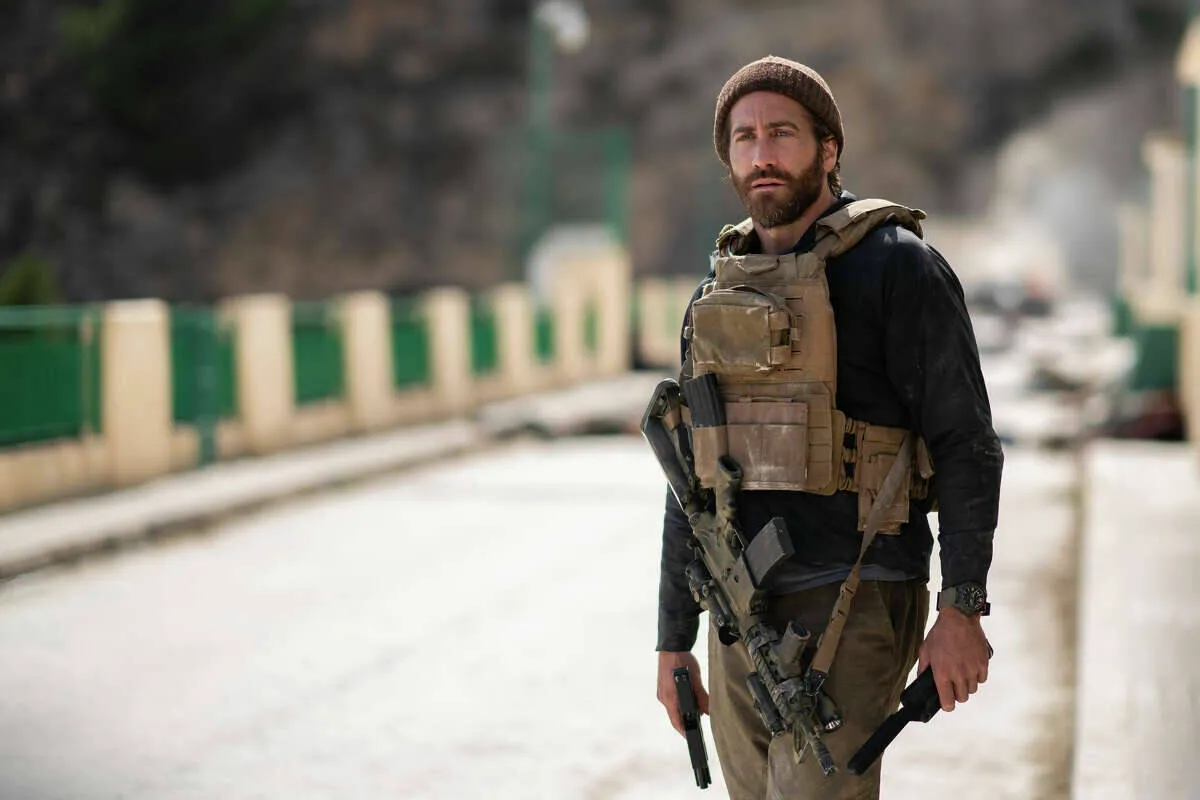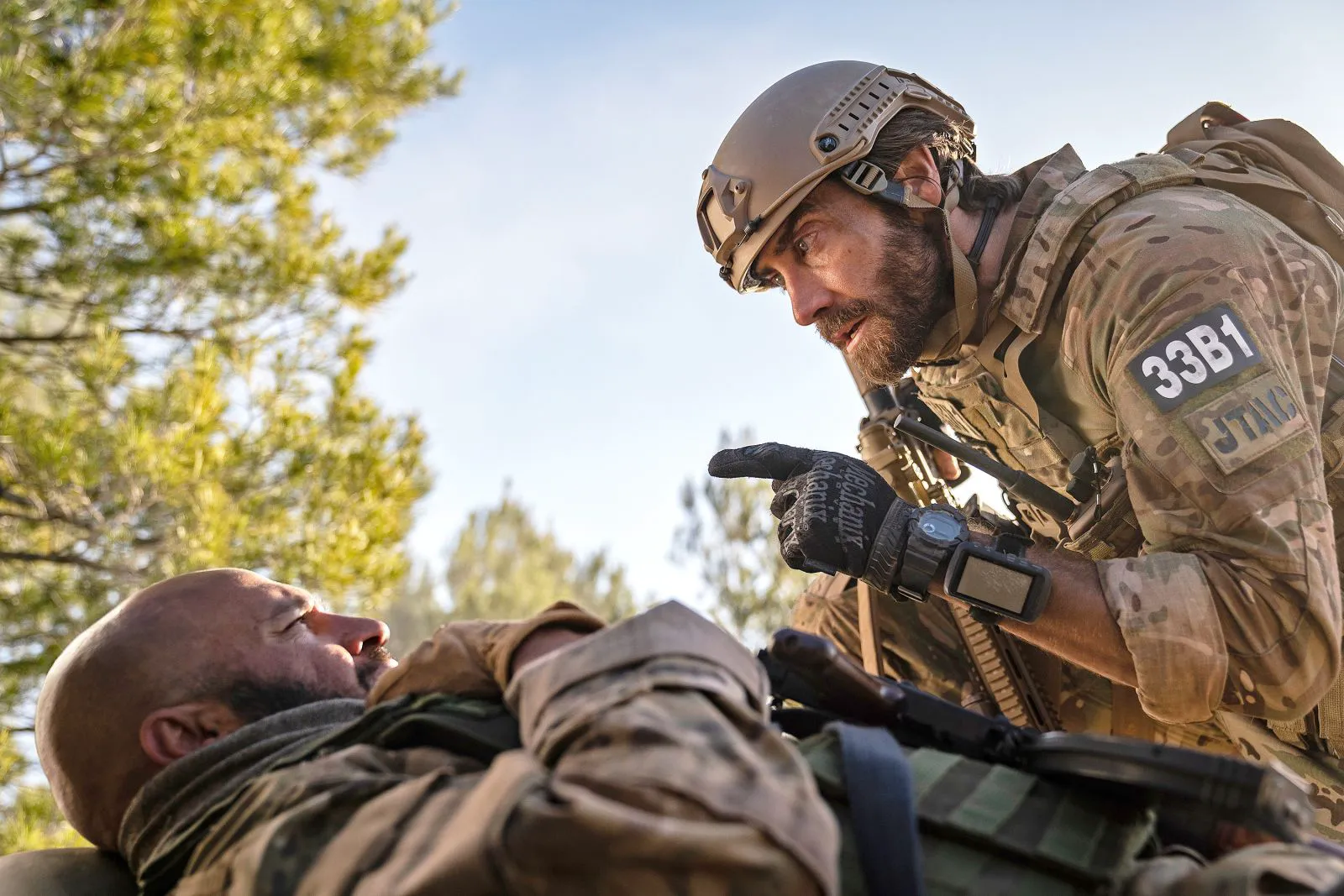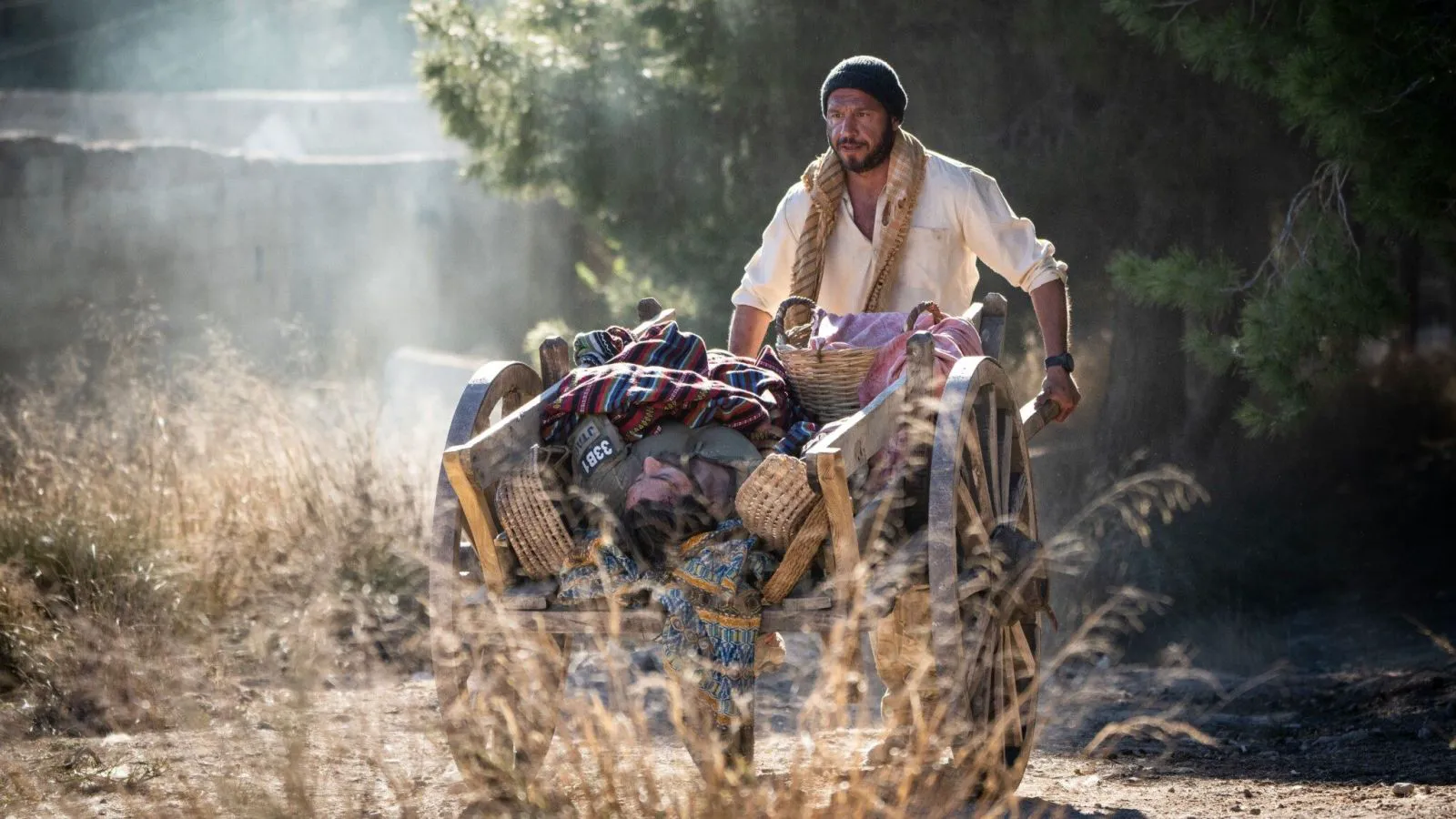Guy Ritchie’s “The Covenant”: A Grueling Look at Duty and Humanity in Afghanistan
Afghanistan, March 2018. Translator Ahmed (Dar Salim) saves the life of Sergeant John Kinley (Jake Gyllenhaal). Back home, Kinley learns that Ahmed and his family have not been granted American citizenship as promised. He decides to return and rescue his comrade, who is now in grave danger.

Jake Gyllenhaal as John Kinley in “The Covenant”
Guy Ritchie’s latest project, where he seems to explore a new genre each year, begins with several historical disclaimers. In response to the September 11, 2001 attacks, the United States entered into a military conflict with Afghanistan and the radical terrorist movement. By 2011, authorities had hired 50,000 local translators—native speakers who were promised U.S. citizenship after the successful military campaign. Ritchie’s fourteenth film, “The Covenant,” doesn’t seek to reinterpret the past but enthusiastically explores the concepts of duty and humanity, which have become rare and almost fossilized in our time.
A Mission Gone Wrong
Seventeen years after the start of the conflict, Sergeant John Kinley—a composite of tens of thousands of soldiers—loses one of his translators before an important mission. He is quickly assigned a replacement: Ahmed, a sharp-tongued auto mechanic. Kinley’s platoon faces the daunting task of locating and destroying explosive devices and ammunition depots belonging to terrorists. When they fall into a trap, Kinley is seriously wounded. Ahmed takes it upon himself to deliver the sergeant to safety, traversing miles of hostile territory without communication, water, or other necessities.

Dar Salim as Ahmed in “The Covenant”
A Shift in Genre for Ritchie
Ritchie, along with longtime collaborators Ivan Atkinson and Marn Davies (“The Gentlemen,” “Wrath of Man”), ventures into the territory of a Middle Eastern military drama for the first time. Ritchie still considers it a “delicate matter”: having replaced the “Arabian Nights” of the “Aladdin” remake with the blood and sand of anti-fairytale terror, the director emphasizes personal stories. However, Ritchie struggles to avoid accusations of unbridled patriotism and colonialist fantasies. By giving the film a grandiose nickname—originally titled “Guy Ritchie’s The Covenant”—the author fills the movie with banal and uninspired shootouts, unmemorable thriller elements, and a drama devoid of any real identity.
The Debt Repaid
After a miraculous rescue, Kinley wakes up in the States, trying to return to a normal life with his wife (Emily Beecham) and two children. He can’t shake the thought of Ahmed, hiding from terrorists and having sacrificed his freedom for his comrade. In the second half of the film, Kinley calls immigration services to secure a visa for Ahmed, but he gets stuck in a nightmarish limbo of rejections and hold music. Using all possible contacts, the sergeant enlists the support of a comical Jonny Lee Miller, as well as “Hunger Games” graduate Alexander Ludwig and “The Boys” star Antony Starr. He reminds all three of honor and duty, without which it is impossible to exist in this profession.

Dar Salim as Ahmed in “The Covenant”
Falling into Cliché
The last half hour of “The Covenant” devolves into a chaotic and clumsy parody of every B-movie action film ever made. The events resemble playing an easy level of a video game or a mediocre music video from the 2000s: explosions, magical allies descending from the heavens, offering a hand, and whisking people away in a helicopter. A stern Gyllenhaal mentally recalls his “Jarhead” days, but the script doesn’t allow the character of Kinley to develop beyond stock phrases and the standard angry screams for which the actor is known. Having abandoned any hope of winning an Oscar, Gyllenhaal has noticeably lowered his standards and started working with authors of a different caliber, placing Ritchie alongside Michael Bay. The true emotional center of “The Covenant” is Dar Salim—a brilliant performance full of nuance and stoicism, which Ritchie, in all his brutality, fails to acknowledge, only highlighting it in rare and touching moments. “I don’t translate, I interpret,” Ahmed says in one scene. His fight against terrorists is driven by the personal loss of his murdered son, and Kinley partially reminds him of the selflessness and fearlessness that people are capable of in moments of even the wildest despair.